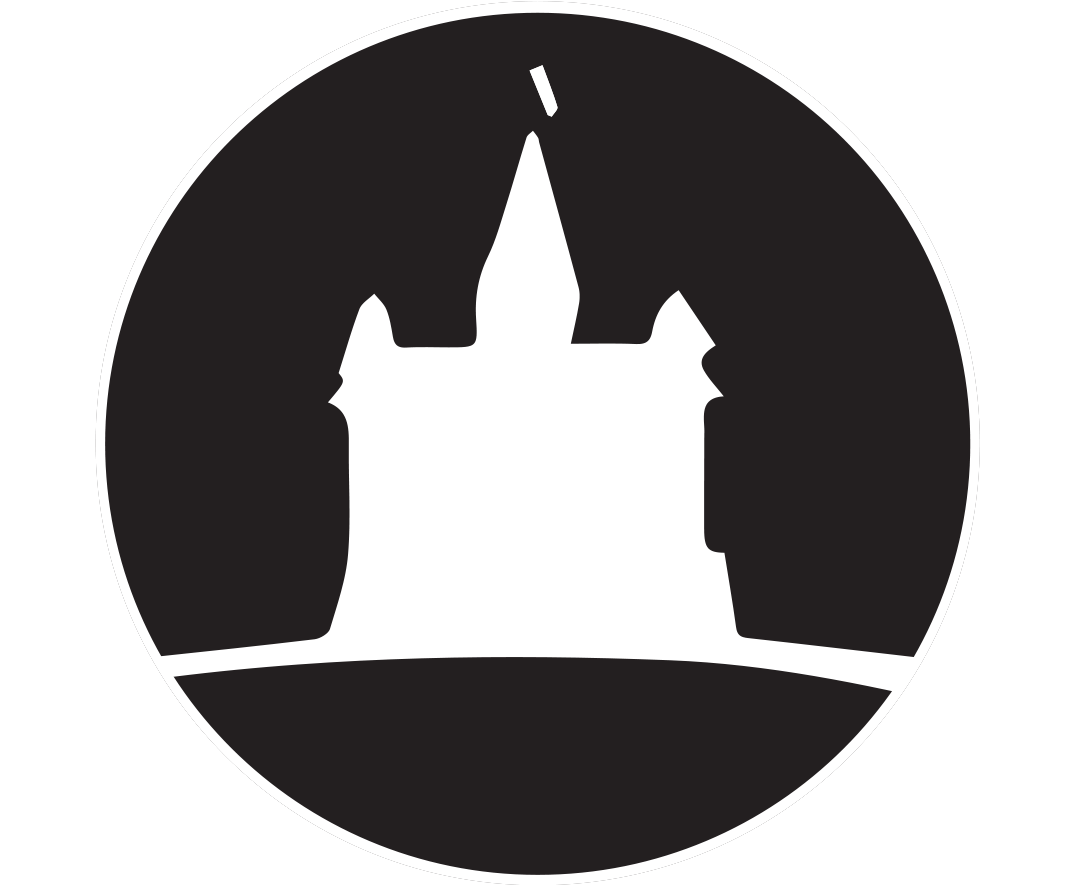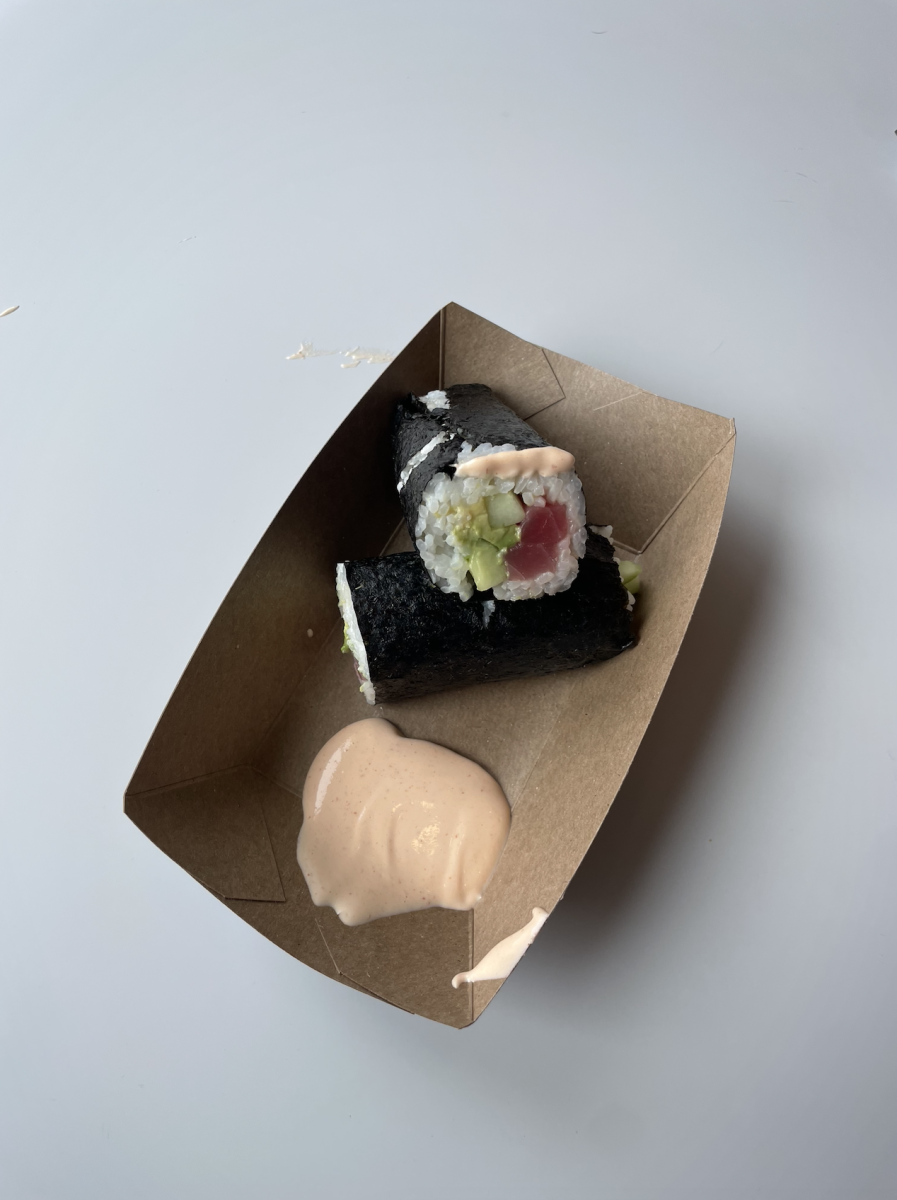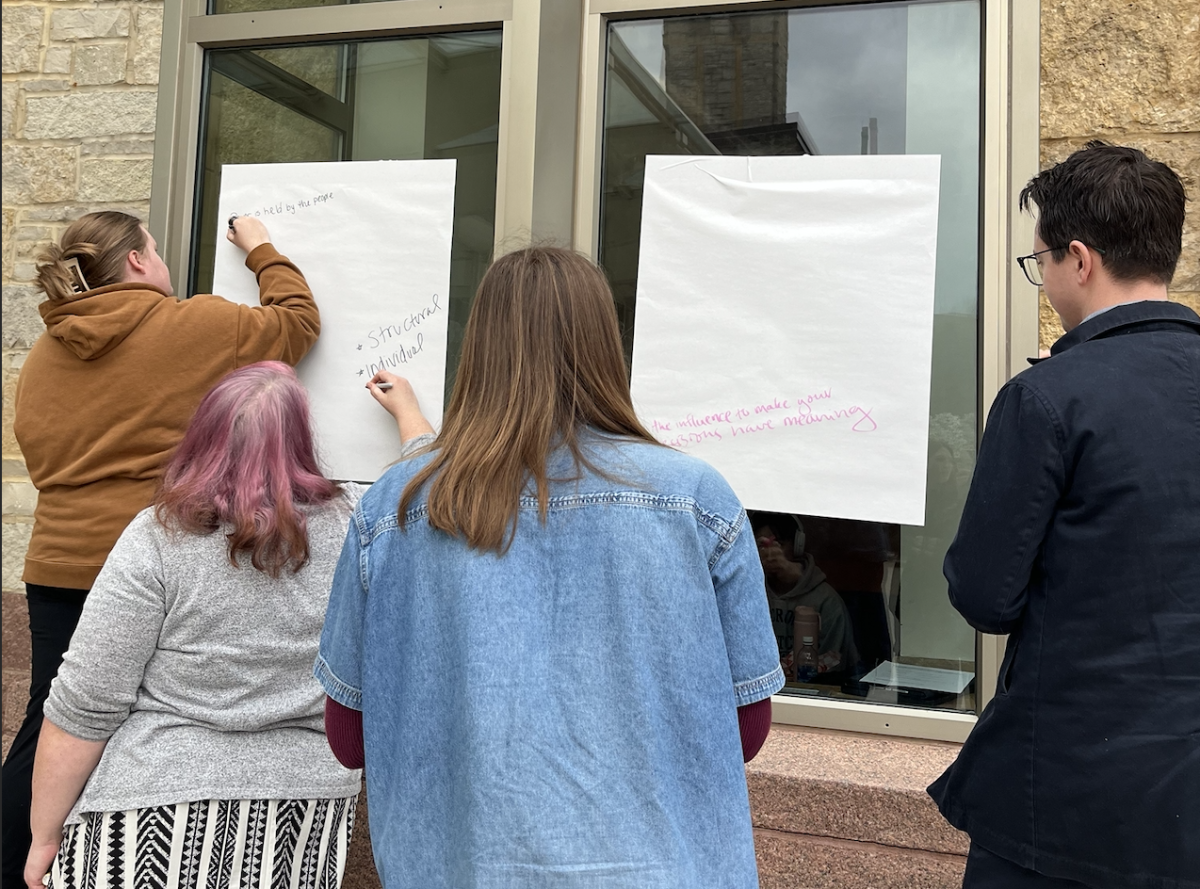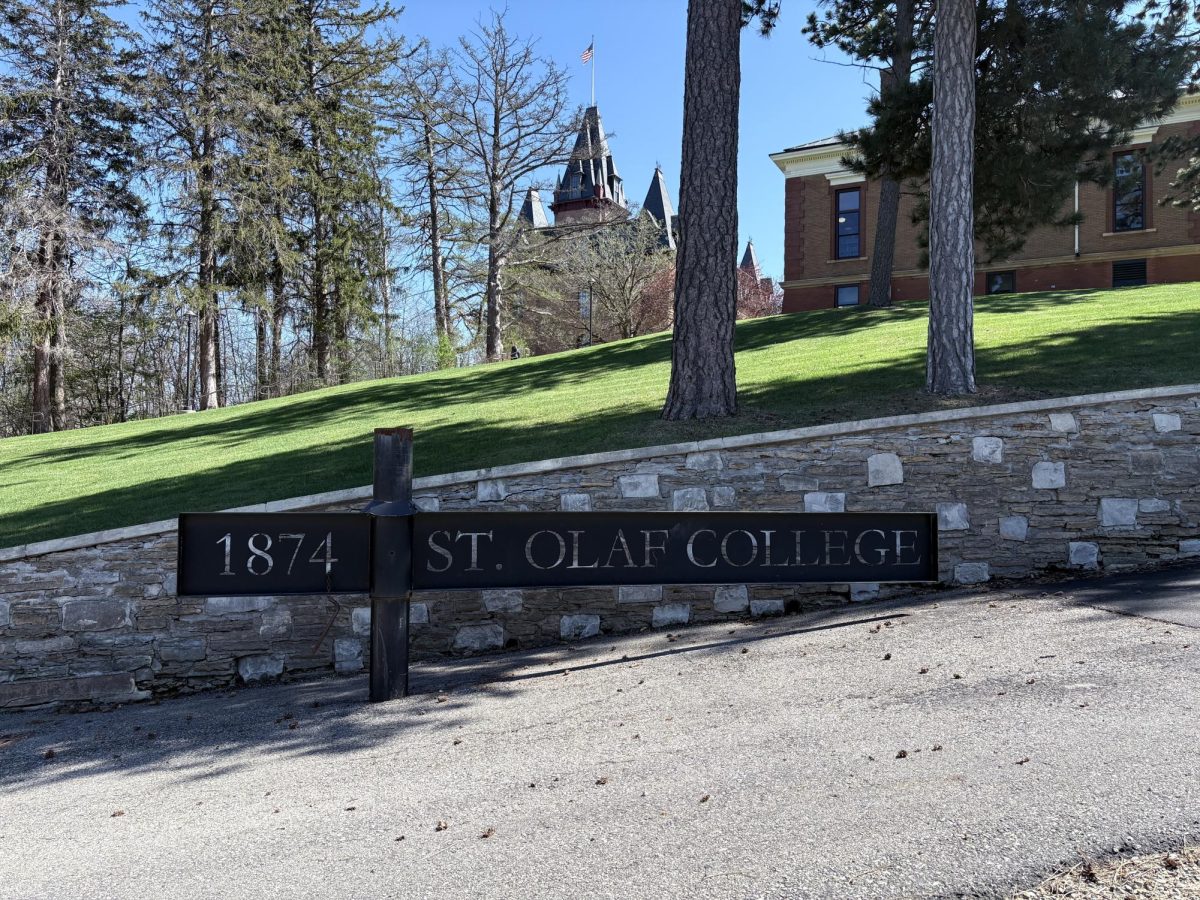The St. Olaf Board of Regents held its first meeting of the academic year on Oct. 14 and 15 over Zoom. The Messenger interviewed Fenton Krupp ’24, the Board of Regents Student Committee (BORSC) coordinator and student observer to the board. The interview appears below and has been edited for length and clarity.
How did the first Board of Regents meeting go?
Krupp: Overall, pretty good, I think. We had some interactions with a lot of students at the meeting, so that was great. BORSC did not formally present, and there’s a bunch of reasons that go into that, but overall, we still got the chance to bring a lot of student voices to conversations, so that was really good. It’s also just a really exciting time for the Board; they have this giant taskforce and plan that’s one of the largest projects that’s been brought to the Board’s attention in recent years.
What is the taskforce for?
Krupp: It’s really radical, kind of. It’s basically reimagining a lot of parts of the St. Olaf experience. The one that I’m going to be getting a lot of input from students about is changes to advising and mentoring and support on campus, because that’s an area that St. Olaf has a lot of really great resources in that are A. underutilized and B. could also be improved. So, looking at how we can better connect students to stuff like the Wellness Center, the Counseling Center, and other support networks on campus is something that the PLT (President’s Leadership Team) is going to be focusing on a lot this year at the direction of the Board.
What role did the Board play in the task force?
Krupp: Last year, the Board created a task force, and over the course of last year, this task force looked at creating a new vision for St. Olaf and they created action items to carry out that vision. One of the action items they came up with was to revamp advising and mentoring and support.
You mentioned you brought student concerns. Were these specific students who reached out to you? How did that work?
Krupp: There were two sessions that students spoke at. The Board meetings happen over two days, so we had one student session each day. The first day, we had students in one of the committee meetings. The Board has ten committees, and the BORSC chair — me — sits on the Community Life Committee. So that session opened with talks about admissions and marketing strategies, and we heard from the Taylor Center and Student Activities Office. Then we had breakout rooms. We had 20 minutes of breakout rooms, so we had students, faculty, PLT, and Regents. What did we talk about there? Nothing super productive. We had “why are you a Regent,” “why are you on BORSC,” and “what do you hope for St. Olaf for the year,” but that session was really more to give Regents an idea of what students are like this year. You can’t really do that in 20 minutes. So, not super productive, other than that it exposes a few more BORSC members to the Board, which I think is really vital for understanding how the Board works and also starting to humanize students a little more.
So that was the first interaction students had. The second one was on the second day of meetings, which was when we brought in student leaders from all over campus. We had JCs, Taylor Center mentors, Piper Center Peer Advisors, SGA people, senators. In that session, we looked at the advising and mentoring plan. The Board uses the language of “developing the whole person” — a holistic approach, looking at what that approach looks like, what could we possibly implement. It was slightly more productive in that we had more time and it was a little more focused, but I will say that session sort of also lacked direction. The Board is not the one who is going to be doing much of the groundwork of developing this plan, so I think it was good to have some voices from students and for the Board to hear that, but at the same time they had already decided what they were going to do, which was to delegate this work to the PLT.
Besides the student presentations, what else happened at the meeting?
Krupp: The current Board chair likes to open meetings with presentations from the President and the [President’s] Leadership Team. The college is doing well, generally. Class sizes are on track, the capital project is going on right now for Ole Avenue, that is still on schedule and budget, so the Board is happy to hear that. They are looking to continue to increase DEI (diversity, equity, and inclusion) work on the Board. The Board has a bunch of different subcommittees, and they all added DEI language to their charters recently. There has also been the formation of a DEI committee on the Board of Regents. I believe last year was the first year for that, but it is really starting to take off this year, which is good, because I’m not sure that a lot of people know that the Board is actually — at least seemingly — trying to work towards a slightly more equitable St. Olaf.
What work do the committees do?
Krupp: There are 10 committees, so there is a lot of different work. There’s finance; there’s investments, which did work with CJC (Climate Justice Collective) last year; there’s the executive committee, they focus on PLT’s salaries and the president’s salary; there’s the recruitment committee, they look for new Regents and do governance stuff like bylaws. I am only in one of the committee meetings, so I can really only tell you what is going on in Community Life, because the summaries for committee meetings are about a minute or two when they report to the whole Board, which is the meeting that I am in. Other than that, I know that there are some other things going on that I am not privy to, just because there are executive sessions which are only Regents. There are meetings that even I don’t get to go to at the Board of Regents as the student observer.
How does your role and the roles of BORSC and other students in these meetings work?
Krupp: I sit on the board as an observer, so I am not a voting member, but I am fully invited to participate in discussion and offer my input. I don’t have to wait for the regents to invite Fenton to speak. A lot of the things are just discussions, so you’ll have a presentation — we had a presentation about the taskforce report — and then there is discussion about specific aspects of it. I brought up some different things — some of the language they were using and how that could be perceived by students, because I see the most important part of my work as relaying at least some of the student experience. Obviously, I can’t represent the 3000-some people here fully accurately, but stuff like using the phrase “Ole culture” could be perceived negatively by students on campus. I do a bit of collaboration. There is also a faculty observer to the Board of Regents, so it’s nice to have someone who is in a similar situation to me.
Who were the other students at the meeting?
Krupp: For the first session, it was mostly BORSC members. We had a senator and someone from another SGA branch as well. For the other meeting, we had people from all over the place. All of those students were found and picked by me, because that’s really a BORSC mission, bringing students to these sorts of things. It is one of the most challenging parts of my role, trying to get students engaged in this work, partly because you don’t see clear effects right away, and there’s a massive disconnect between the students and the board. Part of that is working with the President’s Leadership Team, who coordinates a lot of the meetings, in making sure students really do get voices. Something I’ve been pushing for is in the May meeting, we will have a student presentation, is my assertion right now. And that’s something I’ve shared with the point person for the President’s Leadership Team on that. I’m feeling fairly confident about actually seeing that realized.
That’s what BORSC will be doing this year, is looking at what we can research and evaluate from the student side to bring to stuff like this advising plan or other aspects that the board is really interested in right now.
Why do you think the disconnect between students and the Board of Regents is so big?
Krupp: I think it’s kind of an unfair perception, because I got the chance to be in a lot of board meetings, and they are generally receptive to my ideas. I think a big thing is a lot of them graduated a long time ago — 70s, 80s, 90s. There is one regent who graduated in 2018 who serves as the recent grad. Other than that, the majority of them have been removed from the St. Olaf experience for quite some time, which I think makes sense in that they have industry experience, they know how to run businesses, but at the same time this college is so much more than a business. It’s people’s lives you’re dealing with, it’s not just some bottom line you should be trying to hit, especially when it comes to how much money we’re spending on the Caf, and how great that experience is. But I don’t know how to do it better. I don’t know, if you get a lot of young regents, if that will improve the board’s decisions as a whole.
Looking forward to the rest of the year, what kinds of things are you thinking might come to the board’s attention?
Krupp: My understanding of working with the administration of St. Olaf is that you have to sort of work with their interests and focus on the same things as them. If there are pieces that connect to your agenda, then you push those in more subtly. How I envision this year going is working with the PLT to develop a new advising and mentoring plan that incorporates aspects that work for a more equitable St. Olaf and work for a healthier community. If I just go to the board and say “this is a problem,” it’s not going to work. It’s how you tie your interests to their interests while still maintaining the idea that mental health is really important and could be done a lot better here. I envision working on that plan taking up a significant portion of my time and the rest of BORSC’s time.
Also, working with the rest of SGA. I feel like there are some contentions about SGA, that we don’t accomplish a whole lot, and there’s certainly merit to the idea that SGA could be more effective, but I really do think there is opportunity and there is potential, and I would love to have the opportunity to create some substantial change and maybe inspire a few students.
Is there anything else you would like to say?
Krupp: Fill out our surveys, please! I think BORSC has done a lot of work with data collection, but we are going to be actively soliciting student input on a variety of topics this year. It is probably going to come in the form of comments and interactions, so not trying to get as many numbers, because that can be really, really challenging if you don’t get A. a random sample or B. literally everyone. We’re going to be focusing on more stories and individuals. If you’re interested in coming, ever, to a board meeting, you can email me or [email protected].



